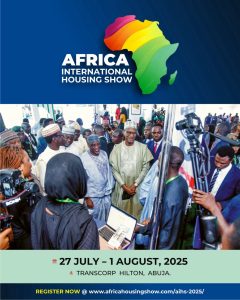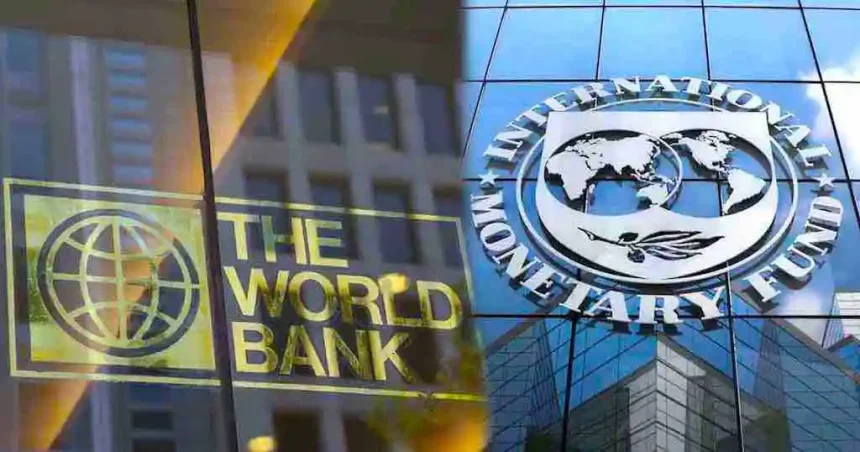The 2025 Spring Meetings of the International Monetary Fund (IMF) and the World Bank Group open this week in Washington, D.C., against the backdrop of mounting global economic uncertainty, escalating trade tensions, and growing skepticism toward multilateral cooperation.
At the heart of this turbulence is the intensifying tariff war between the United States and China—an economic standoff that has injected volatility into global trade dynamics and raised concerns about the future of multilateralism. Earlier this month, U.S. President Donald Trump introduced a sweeping 134% tariff on Chinese imports, branding the move as part of his “Liberation Day” agenda, which imposed a baseline 10% levy on nearly all of America’s trading partners.
In retaliation, Beijing raised import tariffs on U.S. goods to 125%, intensifying the economic standoff between the world’s two largest economies. Though Trump subsequently announced a 90-day pause on reciprocal tariffs for 60 countries—including Nigeria—China was notably excluded from the exemption, and the 10% base tariff remains in effect for all countries.

The U.S. administration has defended its trade policy as a move to protect domestic industries and encourage local consumption. However, critics argue that the tariffs could disrupt global supply chains, inflate consumer prices, and weigh down global growth.
IMF Managing Director Kristalina Georgieva has already flagged the tariff policies as a “significant risk to the global outlook.” Similarly, WTO Director-General Ngozi Okonjo-Iweala warned that the U.S.-driven tariff war could shrink global merchandise trade by as much as 1% this year.
As finance ministers, central bank governors, development partners, and global business leaders converge in Washington, discussions will focus on preserving economic stability, promoting inclusive growth, and recalibrating cooperation in a fragmented world order.
Opening remarks will be delivered by Gita Gopinath, First Deputy Managing Director of the IMF, while Jean-Paul Servais, Chair of IOSCO, will offer closing reflections. Notable figures expected to speak include Ajay Banga, President of the World Bank Group; Michelle Jeria, former Chilean president; Tharman Shanmugaratnam, President of Singapore; Rania Al Mashat, Egypt’s Minister of Planning; and leading private-sector voices like Anthony Tan of Grab and Douglas Peterson of S&P Global.
For Nigeria, the meetings offer a crucial opportunity for bilateral discussions and multilateral negotiations amid an uncertain global financial landscape. The country’s Minister of Finance, Wale Edun, and the Governor of the Central Bank of Nigeria are expected to meet with investors and development partners to reinforce existing ties and explore fiscal support mechanisms.
Last week, the IMF’s 2025 Article IV Consultation report acknowledged the progress made by Nigeria’s economic reforms since 2023, noting improvements in macroeconomic stability and resilience to external shocks. The report followed a mission led by IMF’s Axel Schimmelpfennig, who met with Nigerian stakeholders between April 2 and 15 in Lagos and Abuja.
Despite not being directly affected by the U.S. tariffs—thanks to oil and mineral exports being exempt—Nigeria’s fiscal outlook remains vulnerable due to the steep decline in global crude oil prices. With the national budget benchmarked at $75 per barrel, the recent dip in Brent crude below $70 and predictions of a further slide to the mid-$60s could pose a serious challenge to budgetary performance in the second half of the year.
At a recent forum in Abuja, Minister Wale Edun reassured that Nigeria’s oil exports were largely safe from U.S. tariffs. However, the drop in oil prices remains a pressing concern.
“It’s not too bad,” Edun said. “Oil minerals are excluded by America from being in any way sanctioned with tariffs.”
As the meetings proceed, the stakes are high—not just for Nigeria but for all nations navigating this new phase of global economic realignment. The path forward will likely depend on the outcomes of key negotiations, the ability of multilateral institutions to adapt, and how effectively countries can shield their economies from rising geopolitical risks.



